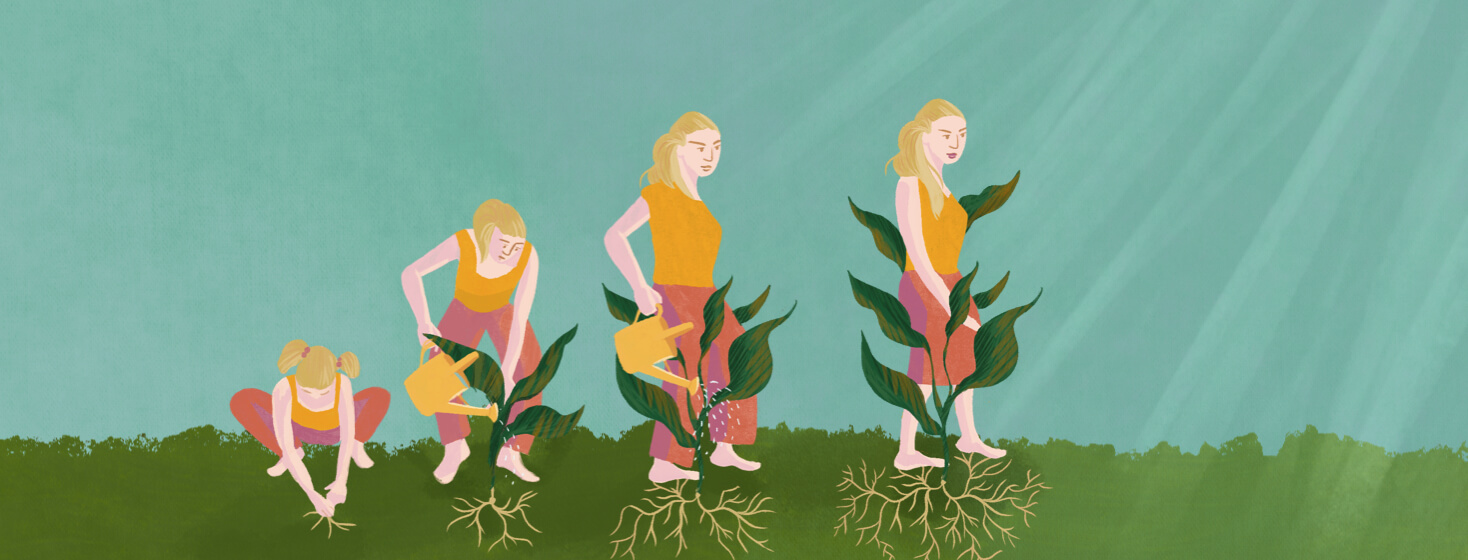Epilepsy & My Identity
A person's identity is so important. Oxford Learner's Dictionary defines "identity" in three ways.
- Who or what somebody/something is
- The characteristics, feelings, or beliefs that make people different from others
- The state or feeling of being very similar to and able to understand somebody/something
Until a couple of years ago, my identity was, "I am an epileptic person." Many amazing events have happened in my life. However, after I found out I had epilepsy at 16, I kept focusing on the parts that validated my basic identity statement, "I am an epileptic." My reflection has taught me a lot about my identity.
Ages 5–16: I am a forgetful girl.
As a kid, I knew how much I struggled with memory and remembering. It was a big part of how I saw myself. Instead, I could have seen myself as a traveler. Every year my family and I would drive from Minnesota to New Jersey. This was one of my favorite times of the year.
I could have also seen myself as a researcher. I can't remember why, but for years I would research everything I could about Leonardo DaVinci. I would check out so many books from the library and write as many papers about him as I was allowed. My mother told me that when I was around 7, I was sad that Leonardo DaVinci was dead because I wanted to marry him.
Lastly, I could have focused on how I was an athlete. I played softball very well. I also played volleyball (not as well).
Age 16: I am an epileptic.
At 16 I should have focused on how blessed I was with such an amazing friend – a friend who helped me figure out that I was having seizures. (Refer to my previous article for the full story on my diagnosis.)
Or I could have focused on the fact that I was a strong and smart person. Reflecting on my past should have made me feel empowered. My diagnosis proved why stress made remembering or even hearing information so difficult for me. I was not a defiant or a ditsy child. I had overcome challenges that made me strong!
Age 17: I am the sick girl from my epilepsy medication.
I should have seen my successes at 17 years old. When I was 17, I was accepted into the "People to People" program for high school students. I was nominated by my art teacher and was able to travel along the Mediterranean and visit different countries.
Additionally, I also finished high school early. I did still walk with my graduating class, but I completed all my credits early.
Age 18–30: I am the epileptic burden to others.
This concept took years to overcome. I have only recently understood that I am not a burden. I AM BLESSED. I do have some family and friends who truly care for me and want to help.
Moments of identity crisis with epilepsy
- Age 20 - 21: I have to schedule my life because I am epileptic and can't drive. What I should have seen is that I am brave. At 20 years old, I moved from Minnesota to Alaska without family or friends moving with me. I am an independent woman! I researched and created plans to give myself freedom. My independence also helped me overcome obstacles such as not being able to drive. I am successful! Being an extreme planner allowed me to work full-time, graduate my vocational school at the top of my class, and immediately have a job after I graduated.
- Age 21: I am a conquerer of epilepsy, I am seizure-free with medication! I am dedicated and I achieve my goals. Putting my health first allowed me to become seizure-free. This achievement led me to be able to purchase my first home. I am happy a happy woman.
- Age 24: I have epilepsy, and no one will want to marry an epileptic. What I should have known is that I am lovable for who I am as a person. I am also a brave adventurer as I move to Arizona.
Age 28 to present: I am grateful. I am more than an epileptic.
My reflection has helped me better understand myself. I do have epilepsy and I make sure to take my medication daily. I've worked on putting my health first. (Although, I can't pass up Chick-fil-A.) However, the "who or what" I am is more than an epileptic.
As you move forward, remember that you might have epilepsy, but you ARE more than your diagnosis. Always remember, you are not alone.

Join the conversation